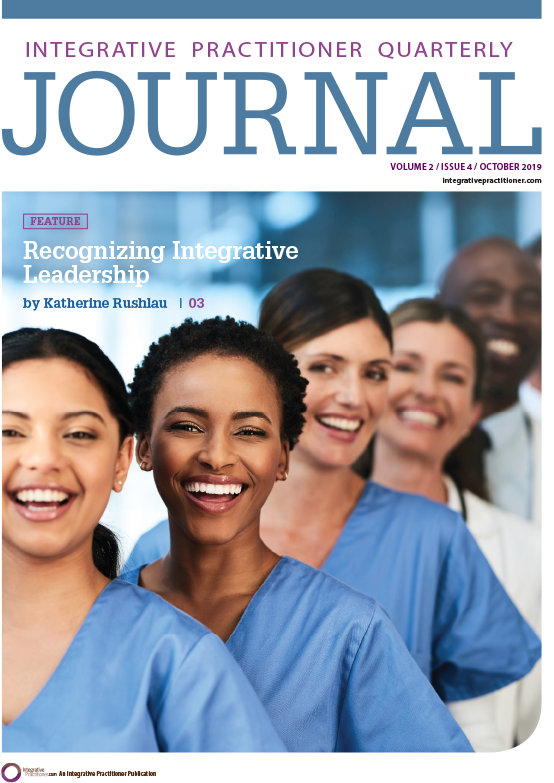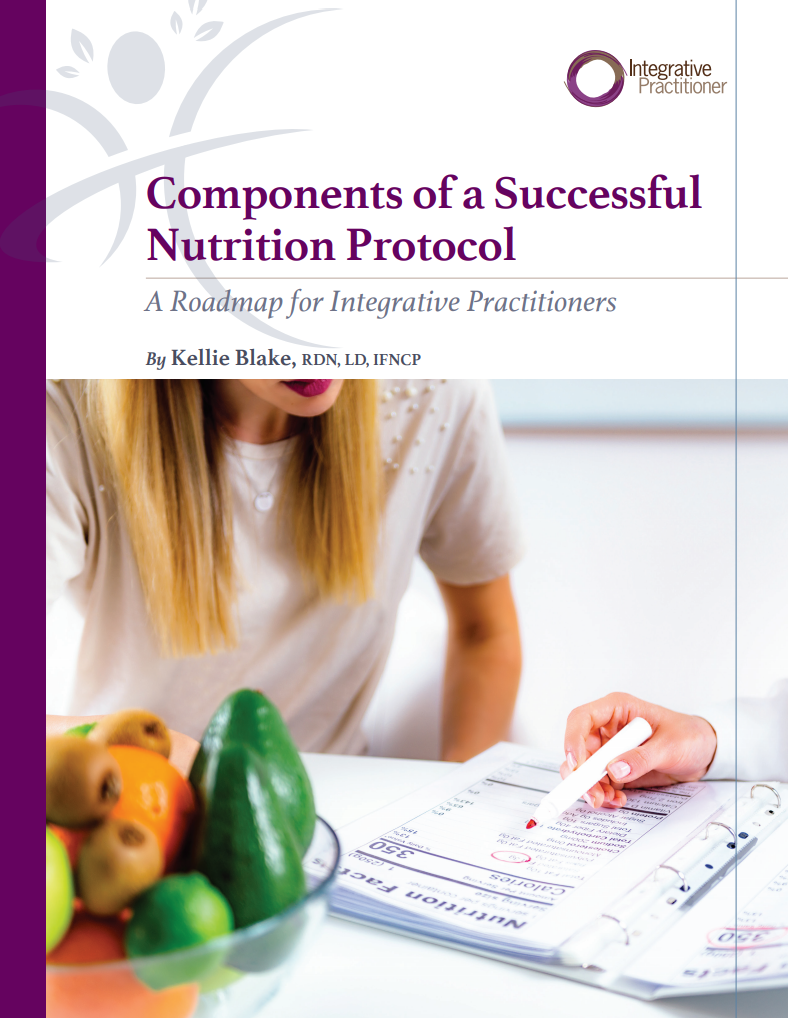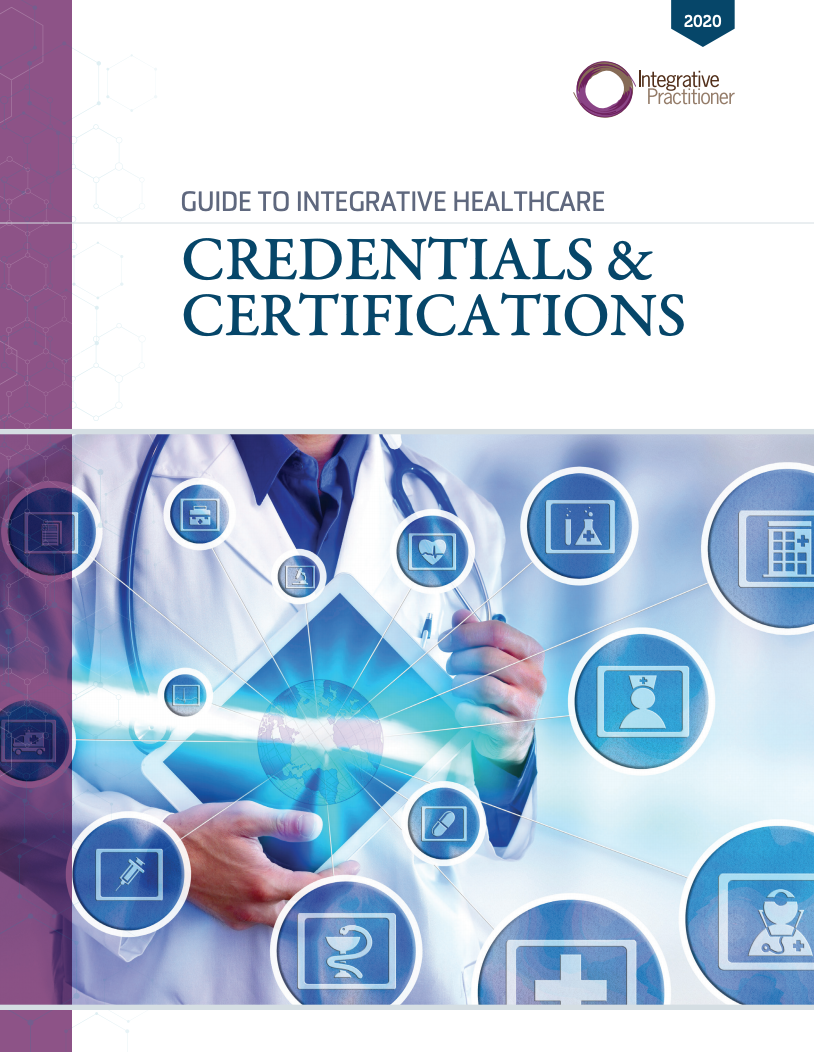Filters
Product Categories
This issue highlights integrative leaders and initiatives to improve the delivery of integrative healthcare.

Presented by: William Seeds, MD
Improved cellular efficiency has the ability to promote favorable outcomes for metabolic, infectious, and autoimmune disease regardless of the etiology. Metabolic flexibility of the cell modulates interaction of cell metabolism and two-way communication with the innate and adaptive immune system. Loss of metabolic flexibility leads to changes in thermodynamic ratios of nucleotide coenzyme couples NAD/NADH,NADP/NADPH,ADP/ATP and AcetylCoA/CoA in the nucleus, mitochondria, peroxisome, and cell cytoplasm disrupting cellular homeostasis. In this presentation, differences between a healthy cell vs. inflamed cell are examined, as well as the relevant pathways of returning to homeostasis.

How to Maintain Healthy Vision with Natural Eye Care

Presented by: Meg Jordan, PhD, RN, NBC-HWC
Front-line emergency personnel are usually what comes to mind when people think of health professionals during the COVID-19 crisis, but the role for certified professional health coaches is vitally important, too. This session provides an exploration of what is at stake for individuals and families when health inequities, systemic discrimination, and higher rates of chronic disease combine to create a syndemic (above and beyond a pandemic) for BIPOC, under-resourced communities and at-risk populations. Group coaching and one-on-one coaching can work in tandem with public health initiatives for reducing chronic disease burden. Strategies for addressing social determinants of health (SDoH) in a manner that stays within coaching scope of practice will be presented, along with an expanded toolbox of skills for developing next-generational cultural competencies for health coaches.

The healthcare industry is shifting from one-size-fits-all to a personalized approach to patient care. As nutrition is an integral part of the integrative medicine model, a tailored plan is crucial for long-term patient success.
In this comprehensive resource, author Kellie Blake, RDN, LD, IFNCP, overviews fundamental nutrition concepts and components of an effective tailored nutrition plan, so practitioners can make better recommendations for specific patient needs.

Presented by:
Andrew Wong, MD
According to functional medicine – and Hippocrates – the gut is where both health and disease begin. However, due to chronic stress, overuse of antibiotics, contamination of the food supply with endocrine disrupting chemicals, over-consumption of highly antigenic foods (such as gluten- and casein-containing foods), as well as gut microbiome imbalances, increased gut permeability is rampant and can both impair the absorption of nutrients and facilitate increased entry of toxins, leading to chronic illness. Furthermore, if chronic disease is established, the patient can get trapped into a vicious cycle of inflammation, malabsorption, and perpetuation of illness.
Clinical experience has shown that using IV nutritional therapy can accelerate healing times and result in improved clinical responses, including improvement of previously intractable or difficult-to-treat cases. Specifically, this talk will examine the indications for, research on, and clinical role of four key IV nutrients in promoting recovery from chronic illness, including ascorbic acid, glutathione, nicotinamide adenine dinucleotide (NAD+), and phosphatidylcholine (PC).
In this lecture, using the IFM Matrix model, Wong will delineate how to decide to start with oral therapy versus IV nutrient therapy; how to include IV nutrient therapy as part of a therapeutic program for optimizing gut, brain, cardiometabolic, and immune health, for boosting the mitochondria, and for enhancing detoxification programs for mycotoxins and other environmental chemicals. Clinical protocols for safety and efficacy of IV nutritional therapy, as well as case studies highlighting the nutrients described, will be presented, and discussed.
This presentation was recorded at the 2022 Integrative Healthcare Symposium Annual Conference.

This guide is meant to serve as a comprehensive encyclopedia of credentials and certifications commonly designated by integrative practitioners. We have identified and categorized credentials and certifications that are most relevant to the integrative healthcare industry and taken a step further to define how a practitioner obtains each credential and the scope of practice it affords. Our goal was to create a reference guide to be used by practitioners to analyze qualifications and expertise for hiring, referral, or other professional purposes.
Included in this resource:
- Over 130 integrative healthcare credential and certifications
- Detailed entries highlighting what the credential certifies, standards and requirements, scope of practice, accreditation and governance, and continuing education
- Background information on all license and certification entities, including its headquarters, type of organization, mission, and website, as well as newly added sections on leadership and contact information
- An updated glossary of terms mapping out medical boards, credentialing agencies, and certification entities as well as common industry terms

Presented by: Christopher Bump, DC, MS, IFMCP, CNS, DABCN
The incidence of autoimmune conditions is rapidly rising, and viral agents have been implicated in the onset of many of these conditions. Epstein Barr Virus, (EBV). The relation between these herpes class viruses and autoimmune diseases involves numerous mechanisms including molecular mimicry, epitope spreading, and direct bystander activation. The association between the herpes class viruses and of autoimmune will be described in this lecture, with focus on EBV. Based on the most recent research studies, this session will discuss the nature of herpes virus infection, its pathophysiology, as well as prevalence. An algorithm for diagnostics will be described and useful insights into clinical application and therapeutics.

Presented by: Catherine Florio Pipas, MD, MPH
Effective care of patients requires patience and a deep understanding of self. Narrative writing is the application of personal reflection, writing, and sharing to explore our own and others’ life experiences and to understand the impact these experiences have on our thoughts, emotions, actions, and interpersonal outcomes – including patient care. Health professionals participating in narrative writing gain a deeper understanding of their own experiences in addition to their patients’ experiences, resulting in a rich appreciation of illness and wellbeing. They also enhance their ability to empathize with and advocate for self and others. This session will describe the process of narrative writing and allow participants to explore personal experiences during these most challenging times of COVID-19.
This presentation was recorded at the 2022 Integrative Healthcare Symposium Annual Conference.

Presented by: Gail Van Kanegan, DNP, FNP, APHN, EEM-AP, Reiki Master
Holistic nurses are responsible leaders for the initiative to provide holistic integrative pain management modalities to those suffering with chronic pain. On a global perspective, we can assist those who are in severe pain without access to appropriate pain medications.


















